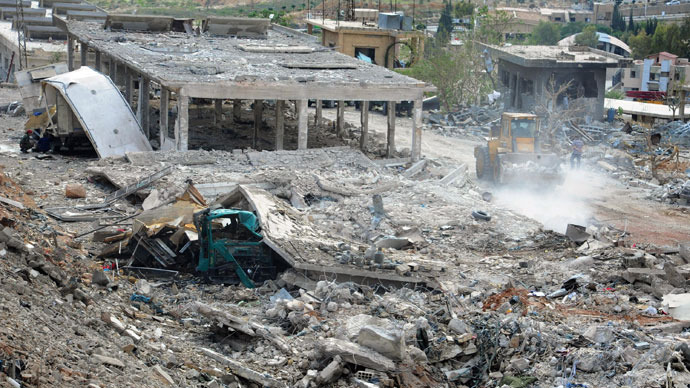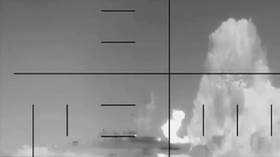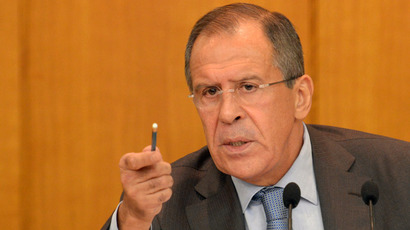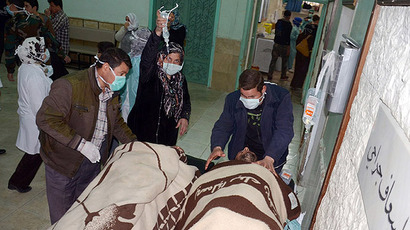Israel gearing up for ‘surprise war’ with Syria if Assad falls – general

The unrest engulfing the Middle East could result in Israel becoming involved in a “surprise war” with Syria, according to the head of the Israeli air force.
"When you look [around] today I think that a surprise war can
be born in very many configurations," Major General Amir Eshel
said at a conference near Tel Aviv.
In particular, the general stressed that if rebels ousted Syrian
President Bashar Assad and seized the huge stockpiles of missiles
within the country, it could lead to a major conflict in the
region.
"If Syria collapses tomorrow, we are liable to find ourselves
in this stew very quickly and in a very big way," Eshel
said.
"The enormous arsenal parked there... will be spread all over
the place and you find yourself having to act on a very broad
scale."
On Tuesday, Israeli chief of staff Lt. Gen. Benny Gantz issued a
personal warning to President Assad, saying the Syrian leader would
“bear the consequences” in the event of further attacks on
Israeli forces. The threat followed the Syrian military firing
across the armistice line on the Golan Heights, hitting an Israeli
military vehicle. Israeli troops have responded to such events by
taking retaliatory shots at targets across the Syrian
border.
Technically, Israel has been at war with Syria since it seized
1,200 square kilometers (460 square miles) of the Golan territory
from its neighbor in the 1967 Six-Day War. Fourteen years later,
Tel Aviv annexed the land, though the move has never been
recognized by the international community.
Israel warned it would not tolerate fire from Syria, or the
transfer of advanced weapons to militants.
Tel Aviv maintains that its main concern is that Syria’s arsenal
– which includes chemical weapons, anti-aircraft systems and
missiles – could be sent to Hezbollah or fall into the hands of
rebel groups linked to Al-Qaeda. Israel reportedly conducted
flights into Syria to determine if there were any chemical weapons
stored across the territory of the conflict-torn state. Tel Aviv
has denied the flights took place.
Earlier, Israeli defense officials spoke out on a more positive
note, saying that Israel's ability to deter attacks on its
positions in the occupied Golan Heights was undiminished.
"The good news is that the continued stability of the Golan
Heights [and] the deterrent power of the Israeli army have not been
weakened," senior defense adviser Amos Gilad told Army Radio at
the time.
However, this past week there have been three consecutive
cross-border shootings, and the Israeli military is concerned by
the incidents, according to Army Radio.














